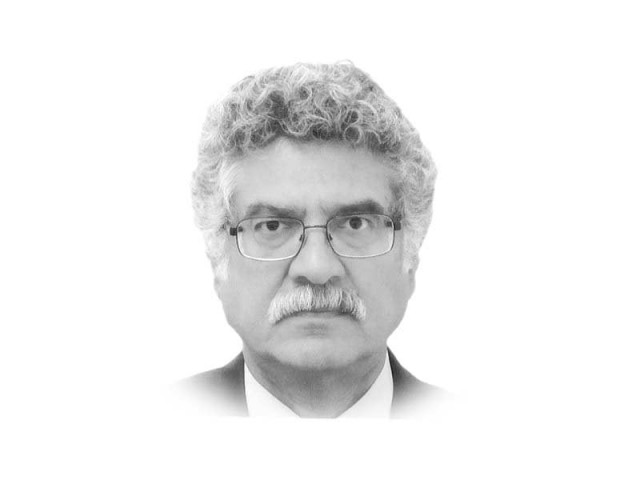Lessons of history
For Pakistan, American adventurism would pose unprecedented challenges

The writer is a former ambassador of Pakistan
The cataclysmic misadventure in Iraq on the false premise that it possessed nuclear weapons was essentially an effort to bring about regime change that caused major devastation. More than 500,000 Iraqis were killed, millions made homeless and refugees in their own country, while pitting Sunnis against Shias even beyond the borders of Iraq, giving rise to the ISIS and Kurdish separatists.
The reverberations of this war also spread destruction to Libya and Syria which are still trying to cope with the fallout even as Turkey has been forced to deal with Kurdish separatists and Saudi Arabia with Houthi rebels in Yemen. Indeed, the entire Middle East has been torn asunder, the consequences of which will continue for generations.
Neither has the US emerged unscathed from this blunder — nearly 5,000 American soldiers died in Iraq while the financial cost was over $3 trillion. The emergence and spread of ISIS still continues to take American lives and threatens its European partners with terrorist attacks as well as refugees. Now the ISIS is also present in Afghanistan, threatening American interests.
The fact that no lessons have been learnt from these profound American blunders is clearly demonstrated by Trump’s recent appointment of John Bolton as his national security adviser, a person who was among the strongest advocates of the Iraqi invasion and justifies it even now.
Responsible Americans had hoped that once in the driving seat, Trump’s aggressive pursuit of ‘America First’ and making ‘America great again’ would be tempered by a realistic and rational approach.
It was believed that appointment of Generals Mattis as defence secretary and McMaster as national security adviser as well as Tillerson as secretary of state would have a restraining influence on Trump’s ‘fire and fury’ approach. But McMaster and Tillerson have been unceremoniously dumped for their divergent views while Mattis may not survive much longer either.
The selection of Mike Pompeo as secretary of state and his replacement as CIA director by Gina Haspel as well as appointment of John Bolton as national security adviser demonstrate that Trump is determined to have a ‘War Cabinet’ of like-minded advisers. Pompeo and Bolton are opposed to the Iran nuclear deal and strongly advocate rollback of the North Korean nuclear weapons capability.
Bolton has consistently advocated use of force against these countries to bring about regime change and destruction of their nuclear assets. Both also advocate continued use of military operations against the Taliban and increased pressure on Pakistan to ‘do more’. Pompeo has also threatened using force to destroy alleged Taliban sanctuaries in Pakistan. Moreover, he is known for his rabid ‘Islamophobia’, which he shares with Trump.
Gina Haspel, for her part, is infamous for her role in torturing prisoners in Iraq’s Abu Gharaib prison and in CIA’s secret detention centres in Thailand. With such a cast of unhinged characters, the Trump administration has become even more deadly and dangerous for both America’s friends and enemies.
The rejection of the Iran nuclear deal would make the situation worse not better, apart from alienating Washington’s European allies as well as Russia and China. The possibility of a war with Iran in these circumstances cannot be ruled out, which may also involve Israel and perhaps Saudi Arabia. Such a course will further inflame the entire Middle East.
As for North Korea, Trump’s acceptance of a dialogue is a good sign but Bolton has made clear after his appointment that America will insist on a rollback of the North Korean nuclear weapons capability — a demand that is bound to be rejected. An attack on North Korea may then become the only option for Trump.
Washington’s confrontation with Moscow and Beijing is already dragging the world into a new Cold War with the Trump administration’s National Security Strategy identifying Russia and China rather than terrorism as the principal threat to US security.
With the development and modernisation of their conventional and strategic forces by all the three powers, including space and cyber weapons as well as Artificial Intelligence based weapon systems, the emerging Cold War will likely be far more dangerous and destructive than before.
For Pakistan, American adventurism would pose unprecedented challenges. Of particular concern will be the Indo-US strategic partnership to contain China. At the same time, US pressure will continue to increase for Pakistan to ‘do more’.
In response, Pakistan will need to effectively use its leverage as a pivotal state in the region — both in terms of its strategic partnership with China underscored by CPEC as well as the American need for Pakistan’s cooperation to sustain its presence in Afghanistan.
Engagement with the US and other relevant countries such as China, Russia and Iran will also be of the utmost importance to find a political solution to the Afghan war. For its part, the US has so far recognised that there is a point beyond which it cannot push Pakistan. In the final analysis, it will be Pakistan’s nuclear weapons capabilities that will under write its security.
It remains to be seen whether Trump’s reconstituted Cabinet will learn from past mistakes or ignore the lessons of history.
Published in The Express Tribune, April 3rd, 2018.
Like Opinion & Editorial on Facebook, follow @ETOpEd on Twitter to receive all updates on all our daily pieces.















COMMENTS
Comments are moderated and generally will be posted if they are on-topic and not abusive.
For more information, please see our Comments FAQ